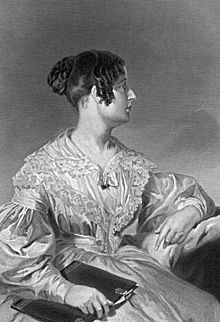
PROLOGUE
In 1962, the year the Pope excommunicated Fidel Castro
and the USA and USSR went toe-to-toe,
I won the Felicia Hemans’ prize for lyric poetry,
open to students and alumni of the University of Liverpool.
Mrs Hemans, born in Liverpool, but living
most of her life in North Wales, a best selling poet,
a child prodigy, a prolific adult, whose work
was admired by Wordsworth and Landor, an influence
on Tennyson and Longfellow, a model even
for Elizabeth Barrett Browning, wrote Casabianca –
‘The boy stood on the burning deck…’ –
which was compulsory learning in, for example,
US elementary schools until the ‘50s.
THE PRIZE: 1962
I chortled when I learned what she had written.
As a boy, I knew two of the cod versions verbatim:
‘The boy stood on the burning deck
Selling peas at a penny a peck.
Did he wash his dirty neck?
Did he heck! Did he heck!’
or, again, and even better:
‘The boy stood on the burning deck
With half a sausage round his neck.
A squashed tomato in his eye,
That’s the way a boy should die!’
I guffawed when I learned of the prize –
twenty seven shillings and sixpence,
less the price of the medal.
THE PRIZE: 2013
Of course, I still have the medal. It is on the mantelpiece
next to an antique silver-framed photo of our daughter aged 4.
It has accompanied me from Liverpool to Birkenhead to Chester.
The medal is cast bronze, discus-shaped, the size of a
Wagon Wheel, the biscuit that is, and weighs nearly two pounds.
On one side, the handsome Mrs Hemans is proud,
framed by her name, her dates, a lyre and an olive branch.
She is in profile with her splendid ringlets.
On the other, an angel, an olive branch in both hands,
blesses the muse, Erato, who inclines, bare breasted and
languorous, over her lyre. My name and the year are engraved
on the edge. The medal cost seven shillings and sixpence.
MRS HEMANS
Her mother is the daughter of the Liverpool consul
for Austria and Tuscany and her father a wine merchant
until the Napoleonic Wars – in which her brothers fight –
bankrupt him. The family moves to an isolated,
ancient mansion on the North Wales coast at Gwrcyh –
the rolling Irish sea to the north, a high outcrop
of jagged limestone to the south – the ideal place
for a precocious romantic poet. (She will wear,
throughout her adult life, a brooch enclosing a lock
of Byron’s hair, but will not tell how it came to be hers).
Schooled by her mother, she becomes fluent in French,
Italian, Spanish, Portuguese, and knows some German
and a little Latin; she learns the harp and the piano;
plays folk music from Ireland and Wales.
At fourteen, she publishes her first book of poems – funded
by nearly a thousand subscribers. Shelley acquires a copy,
learns of her beauty through a mutual acquaintance
and begins a correspondence. Her mother ends it.
Her father emigrates to Canada to revive his fortune
but dies bankrupted in Quebec. Shortly after,
at sixteen, with her mother’s reluctant agreement,
she becomes betrothed to a Captain Alfred Hemans,
a regimental comrade of her brothers, some years
her senior. At 18, her mother consenting, she marries.
The militia regiment he commands is disbanded and,
lacking means, they move in with his mother-in-law.
Five sons later he leaves for Rome. The couple correspond,
mostly about the boys, but never meet again.
In effect, a single parent, frequently ill, inevitably depressed,
she pays for her sons’ education through her writing.
After her mother’s death, she moves to Dublin
to live with one of her brothers, now a general
i/c the Irish forces. She becomes bedridden
as a result of a stroke, has a number of heart attacks
and dies aged forty one.
CASABIANCA
The boy in the poem is Giocante de Casabianca,
the deck that of the French flagship, L’Orient,
which took Napoleon to Egypt. Giocante’s father
is the ship’s captain, the boy, a midshipman.
The incident, as recorded by the victorious British,
takes place in the Battle of the Nile. The lad, who might be
as young as 10, calls to his father to release him
from his duty on deck – but his father is dead below.
The rest of the crew, it seems, have already abandoned ship.
When the flames reach the magazine, all is smithereens.
The true Casabianca, by a sister of soldiers and a mother of boys
in a country continually, enthusiastically gung ho for war,
ends with horror – and with a subtle, honest judgement
that the monotonous, constricting ballad metre
almost successfully hides until the last two lines
with their inspired, brave change of rhythm:
‘There came a burst of thunder sound.
The boy – oh, where was he?
Ask of the winds that far around
With fragments strewed the sea –
With mast, and helm, and pennon fair,
That well had borne their part.
But the noblest thing which perished there
Was that young, faithful heart.’
